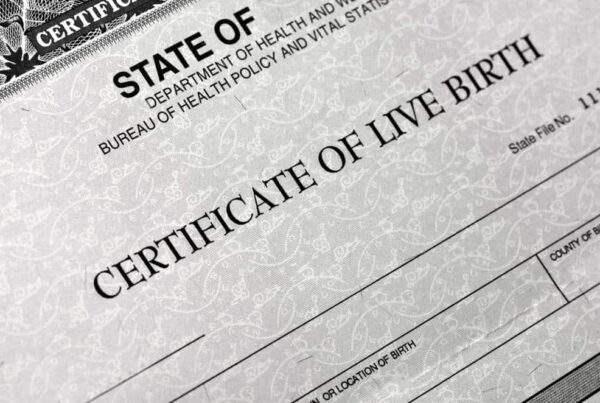
The process for surrogacy in California can be a little confusing at times, especially for international intended parents. It can be almost overwhelming. Don’t worry though, as our guide to surrogacy in California will help you understand the process. You’ll soon be able to legally and ethically achieve your surrogacy dreams.
The surrogacy process brings people together to help create a family. Here’s how surrogacy works in California and how you can start a surrogacy journey all your own.
The Surrogacy Process in California
California is among the most surrogacy-friendly states in all the United States. Even so, there are many legal, practical, and emotional implications involved in the process. You should understand these implications before beginning. Surrogacy in CA generally follows these six simple steps;
Step One: Making the Commitment
Becoming a surrogate means committing to a process that takes around a year and involves your full dedication. It’s a decision that you can’t afford to make lightly. Be sure that you understand the emotional, physical, and legal process of surrogacy. Understand how all of this can affect you and your family – whether you are joining the process as an intended parent or a potential surrogate.
Surrogates should consider how being a surrogate is going to affect their body, emotions, time, family, and career. Intended parents should take time to think about the different options for starting a family in California and how the process can affect their emotional, mental, and financial well being.
You should ask yourself why you want to pursue surrogacy in California. Are you doing it for the right reasons? You should be doing it for something that is going to be worth what you’re about to experience.
Step Two: Choose a Surrogacy Type and Surrogacy Professional
After deciding to go ahead with surrogacy, you have to consider the two different kinds of surrogacy:
Traditional Surrogacy
This has become the less common form of surrogacy for California. With this form of surrogacy, the surrogate mother is the biological mother of a child. It uses the surrogates eggs, fertilized through intrauterine insemination with sperm from a donor or an intended father. California permits traditional surrogacy but doesn’t outright legally address it. There are some legal and emotional risks with this form of surrogacy, which is why people opt for gestational surrogacy.
Gestational Surrogacy
This is the more common choice for surrogacy in California. It involves using sperm and an egg from donors or the intended parents. That way, the surrogate mother isn’t biologically related to any child they carry. The egg is fertilized through in vitro fertilization before being transferred into the gestational surrogate, who carries the baby to term. Gestational surrogacy is well-regulated and fully legal in California. It’s a good choice for building a family.
It is recommended that surrogates and intended parents alike work with a surrogacy professional. There are two main kinds of surrogacy professionals in California to choose from;
Surrogacy Agency
The surrogacy agency offers most of the services necessary to complete a surrogacy journey. That includes screening and matching, as well as case management, counseling, and referrals for all parties involved.
Surrogacy Attorney
A surrogacy attorney is able to offer legal services needed for California surrogacy. An attorney is rarely involved in the matching process, but they may be able to refer you to another professional who can deliver any service they can’t.
Step Three: Choosing a Surrogate
One good thing about surrogacy in California is you aren’t limited to working with surrogates and intended parents from California alone. You could match up with a surrogate from across the United States. Most surrogacy partnerships are long distance and the relationship between the surrogate and their intended parents always flourishes.
Surrogacy agencies in California can assist you with finding a surrogate if you don’t have one. Agencies will show you profiles of women they have pre-screened who match up with your criteria. You can then look through the profiles and choose who you think would be right for you.
If you’ve gone independent and want to do things on your own without the help and protection of a professional, you should tread with caution. You are the one responsible for vetting any matches you find through personal connections and online. You run the risk of falling victim to fraud. Proceed with caution and trust your judgement.
If you don’t know what to expect from your surrogacy arrangement, then having a consultation with a surrogacy professional definitely helps. They can guide you through your options to choose the right match for you.
Step Four: Complete the Surrogacy in California Legal Process
After finding a good match you’re ready to complete the legal process. You have to go through the legal steps before you can begin the medical ones.
Gestational surrogacy in California falls under the California Family Code § 7960. This means that the process is simple enough for intended parents and their surrogates to understand. California allows for pre-birth parentage orders without the need for a hearing. It’s easy to establish parentage rights for intended parents.
Surrogates and intended parents need their own individual representation by a California surrogacy attorney in order to ensure that their interests are equally advocated for when negotiating the surrogacy contract. This contract has to be written and notarized before the fertility treatments can begin, or indeed any other medical procedures. This surrogacy contract, according to California law, must contain the following at a minimum;
- The date the contract is executed
- The persons who donated the gametes used in the process
- The name(s) of the intended parent(s)
- The process for pre-birth and parentage orders if applicable
- The risks and responsibilities of intended parents and the surrogate
- Details of surrogate compensation
- An agreement on sensitive issues such as selective reduction and other possible circumstances
- Expectations of the contract between the parties and who is to be present during appointments and the birth of the child
The attorney will help to ensure that the surrogacy process is completed in accordance with any relevant surrogacy laws in California. After the contract has been finalized and agreed upon, you can start the medical proceedings.
Step Five: Complete the Medical Process of Surrogacy in California
Becoming a surrogate in California means meeting certain health requirements and passing a screening process. These requirements are in place to ensure that someone is healthy enough to deal with the physical demands of being a surrogate.
California gestational surrogates are required to complete a regimen of fertility treatments and hormones. This is done before the embryo is transferred. This transfer generally happens at the fertility clinic chosen by the intended parents. The embryos are created in labs through in vitro fertilization achieved through donated sperm and eggs. The fertilized egg is transferred to the uterus of the surrogate. It may take several cycles of this transfer process for the pregnancy to happen. After the pregnancy is confirmed, the surrogate can start receiving their base compensation. This is entirely legal in the state of California.
Once the surrogate is released from the fertility clinic at about 12 weeks of pregnancy, the surrogate is able to go to their own OBGYN for regular parental checkups. Surrogates also stay in touch with intended parents as much as they want during the pregnancy.
Step Six: Say Hello to the New Baby
It’s common to be part of a long-distance surrogacy. Intended parents generally have to travel to be with their surrogate in the delivery room. Everyone can support one another and share the joy and unique experience of going through a surrogacy birth.
Many intended parents and surrogates in California actually remain in touch after the journey ends. They have been bonded by their shared experience and feel more like family. If you want help to establish this kind of post-surrogacy relationship or you need any resources for what to do post-surrogacy, your surrogacy professional will be happy to help.
If you’re ready to become a surrogate or are looking for a surrogate, then don’t hesitate to get in touch for more information.



